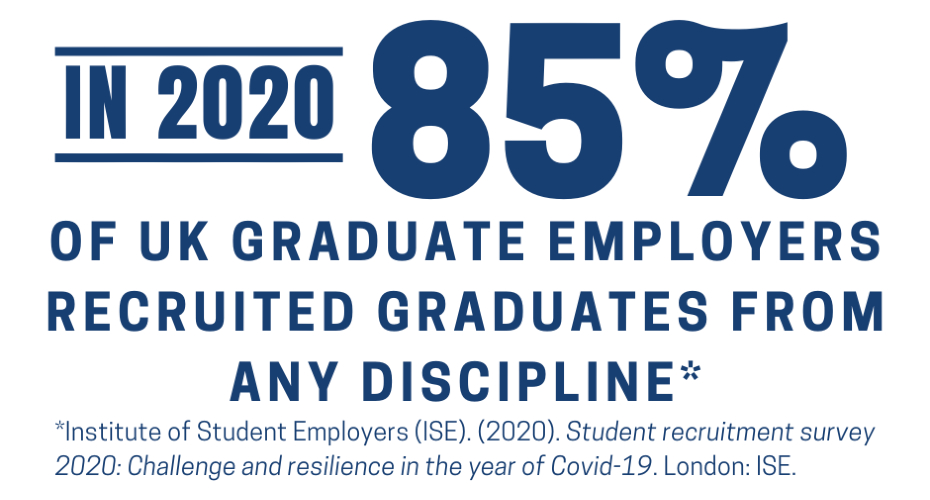

Isabelle Edwards, Economics and Politics (2014)
‘Don't think that you aren't qualified to do a job because you don't have the traditional academic profile to meet the role. You can make up for this with skills, passion, hard work and short-term work experience.’
Wind Power Associate, BloombergNEF
What can I do with a degree in Economics?
The below offers a selection of the destinations University of Exeter graduates from economics have gone on to. The information below is not exhaustive, however it does highlight the range of job and further study options available to you after your studies.
If you would like to learn more about any of the jobs listed below you may wish to browse the job profiles on the Prospects website.
Careers with a degree in Economics
Recent Exeter Economics graduates have entered a wide range of careers. Some recent examples include:*
- Chartered and certified accountants
- Financial accounts managers
- Finance and investment analysts and advisers
- Management consultants and business analysts
- Taxation experts
- Actuaries, economists and statisticians
- Project support officers
- Information technology professionals
- Insurance underwriters
- Business sales executives
Many employers accept applications from graduates with any degree subject, so don't restrict your thinking to the jobs listed above.
Other resources:
- Employment sector pages to research more about these industries
- Prospects to find out more about job profiles
- Royal Economic Society to find out more career options
- Discover Economics - What Economists do
- Graduate Outcomes Data to do a deep dive into the data on what Economics graduates do after their degree
- LinkedIn Exeter Economics alumni tool (you will need to be logged in to LinkedIn to access this functionality) - for further inspiration and to contact past graduates who could share their experiences finding graduate employment
* Data taken from aggregating the responses from full-time, first degree, UK domiciled students who completed 2017/18 and 2018/19 Graduate Outcomes surveys (ordered from most popular to least).
Employers of Exeter alumni with a degree in Economics
Recent Exeter Economics graduates have joined a wide range of employers. Some recent example include*:
- AON
- Barclays
- BT
- Deloitte
- Department for Business, Energy & Industrial Strategy
- Elizabeth Arden
- Ernst & Young
- Hargreaves Lansdown
- HSBC
- IMB
- Johnson & Johnson
- JPMorgan Chase
- KPMG
- Lloyds Bank
- Mercer
- Morgan Stanley
- St. James's Place
Other resources:
- Business School Case Studies
- LinkedIn Exeter Economics alumni tool (you will need to be logged in to LinkedIn to access this functionality)
* Data taken from aggregating the responses from full-time, first degree, UK domiciled students who completed 2017/18 and 2018/19 Graduate Outcomes surveys.
Skills
An Exeter Economics degree will arm you with some great employability skills including:
- Evaluate government policy and assess performance against home and global economies
- Apply mathematical and statistical analysis to qualitative and quantitative data
- Present findings and explain complex data to a wide range of audiences
- Perform confidently in group discussions and produce a high standard of written technical and non-technical materials
- Make logical recommendations whilst considering the wider social and political influences
- Use digital skills – including word processing, spreadsheets, databases, internet communications, information retrieval and online searches
Further Study
Around 44% of Exeter graduates in Economics go on to pursue further study within 15 months of completing their undergraduate degree, with 46% of these completing a Professional Qualification alongside work. Some recent progression routes include:
- ACA
- MSc Actuarial Science
- MSC Applied Data Science and Statistics
- MSc Business Analytics
- MSc Data Science
- MSc/MRes/MPhil Economics
- MSc Finance
- MSc Finance and Investment
- MSc Financial Analysis and Fund Management
- MSc Financial Economics
Some went on to study other degrees including:
- MSc Global Sustainability Solutions
- MSc Marketing
- MSc Real Estate Finance
- PGCE Mathematics Secondary
Useful resources:
- Find a Masters
- Masters Compare
- Masters Portal
- Prospects
- University of Exeter PG Study
- Business School Case Studies
- LinkedIn Exeter Economics alumni tool (you will need to be logged in to LinkedIn to access this functionality)
* Data taken from aggregating the responses from full-time, first degree, UK domiciled students who completed 2017/18 and 2018/19 Graduate Outcomes surveys.
**Individual course names were taken from the University of Exeter's Career Destination survey (2018/19 & 2019/20) as this information is not collected within the Graduate Outcomes survey.
